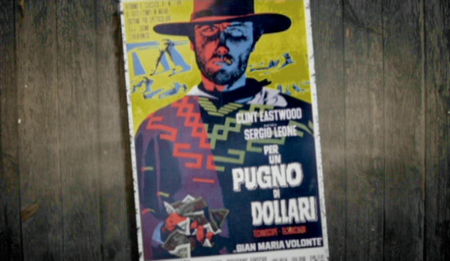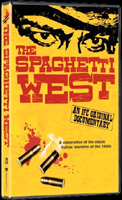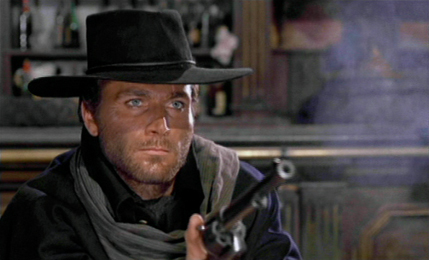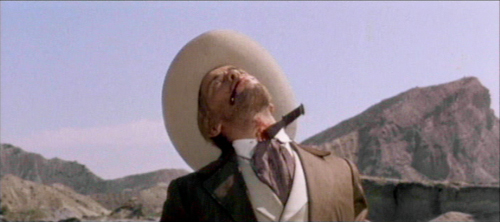
 BUY IT AT AMAZON: CLICK HERE!
BUY IT AT AMAZON: CLICK HERE!
STUDIO: IFC/Docurama
MSRP: $26.95
RATED: Not rated
RUNNING TIME: 56 min.
The Pitch
“Why don’t y’all go back where ya came from?”
The Humans
Interviewees include Sergio Donati, Christpher Frayling, Clint Eastwood, Ferdinando Baldi, Alex Cox, Franco Nero, Sergio Sollima, Ennio Morricone, Tomas Milian; archival footage of Sergio Corbucci and Sergio Leone. Narrated by Robert Forster.
The Nutshell
In the early 1960s, as the sword-and-sandal cycle was winding down, Italian filmmakers looked to the next economically viable genre. They had an established history of shooting on locations in southern Spain and found Almaria’s rocky terrain, plentiful horses and aged railroads ideal for—of all things—an approximation of the American Western. Their innovations would revive a filmmaking tradition that had, in its home country, become relegated to the TV screen.

The Magnificent I-Can’t-Count-That-High!
It’s not entirely accurate to say that the Europeans reinvented the Western on their own: American directors like Anthony Mann and Nicholas Ray had been exploring the psychological potential of the Untamed Land for some time. Further off the radar, Oscar “Bud” Boetticher was practicing a leaner, starker sort of frontier adventure altogether; the ‘B’ pictures he made with Randolph Scott in the 1950s remain masterpieces of brutal economy.*
Italy wasn’t the first country on the Continent to adopt spurs and six-guns, either—that distinction went to Germany, epicenter to a Cowboys-and-Indians obsession dating back to the 19th Century. What the Romans brought to the table was, in a word, blood—a rather Catholic compulsion to portray men at their most sinful; unhindered by laws, civilization, or even the Hollywood production code. The political turmoil of the ‘60s provided a receptive audience for this brand of cynicism: American directors like Arthur Penn and Sam Peckinpah picked up on it and the Western returned home, forever changed.
The Lowdown
An impressive collection of surviving filmmakers speak freely, candidly, and not a little proudly of their work on films like The Big Gundown and A Fistful of Dollars. Master composer Morricone is afforded a chapter unto himself, and Nero displays undiminished charisma.

I’m pretty sure he’s about to shoot the virgin Mary.
Running just under an hour, the documentary wisely avoids spending all its time on Sergio Leone, the genre’s most influential practitioner, but perhaps goes lighter on his uniquely enduring films than absolutely necessary. It’s not a crippling oversight for the dedicated fan, since his movies have received extensive supplemental coverage elsewhere, but an analysis of his political views would have been welcome. Perhaps more than his contemporaries, Leone held to the truism that money is the root of all evil. For all his love of Hollywood films, his notion of America was ambivalent at best— he saw a land offering limitless opportunities… to those willing and able to kill for them.
The Package
No extras, aside from a beefy Docurama catalog insert. Aspect ratio is letterboxed 1.33:1, which is slightly disappointing considering that 16:9 has become the current standard. Transfers on the excerpted films are all first-rate. Titles and transitions cleverly mimic the distinctive credit sequences of the ‘Dollars’ films, and Mark Raskin provides properly Morricone-esque original music.
I really kind of need to go watch Django right now.

Let’s hear it for the Long Distance Tracheotomy Champeen!
*Like Leone’s Men With No Names, Boetticher’s heroes and villains were interchangeable, their legal status a product of circumstance rather than character; many future stars of the New Western, including James Coburn and Lee Van Cleef, made their first strong impressions playing them. The specific influence of Ride Lonesome (1959) on the Italian aesthetic cannot be ignored, and perhaps one day it will finally be released on home video so you all can see for yourselves that I’m right.